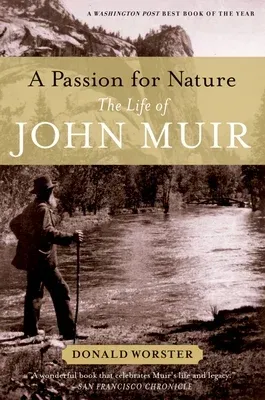"I am hopelessly and forever a mountaineer," John Muir wrote.
"Civilization and fever and all the morbidness that has been hooted at
me has not dimmed my glacial eye, and I care to live only to entice
people to look at Nature's loveliness. My own special self is nothing."
In Donald Worster's magisterial biography, John Muir's "special self" is
fully explored as is his extraordinary ability, then and now, to get
others to see the sacred beauty of the natural world. A Passion for
Nature is the most complete account of the great conservationist and
founder of the Sierra Club ever written. It is the first to be based on
Muir's full private correspondence and to meet modern scholarly
standards. Yet it is also full of rich detail and personal anecdote,
uncovering the complex inner life behind the legend of the solitary
mountain man. It traces Muir from his boyhood in Scotland and frontier
Wisconsin to his adult life in California right after the Civil War up
to his death on the eve of World War I. It explores his marriage and
family life, his relationship with his abusive father, his many
friendships with the humble and famous (including Theodore Roosevelt and
Ralph Waldo Emerson), and his role in founding the modern American
conservation movement. Inspired
by Muir's passion for the wilderness, Americans created a long and
stunning list of national parks and wilderness areas, Yosemite most
prominent among them. Yet the book also describes a Muir who was a
successful fruit-grower, a talented scientist and world-traveler, a
doting father and husband, a self-made man of wealth and political
influence. A man for whom mountaineering was "a pathway to revelation
and worship."
For anyone wishing to more fully understand America's first great
environmentalist, and the enormous influence he still exerts today,
Donald Worster's biography offers a wealth of insight into the
passionate nature of a man whose passion for nature remains
unsurpassed.

